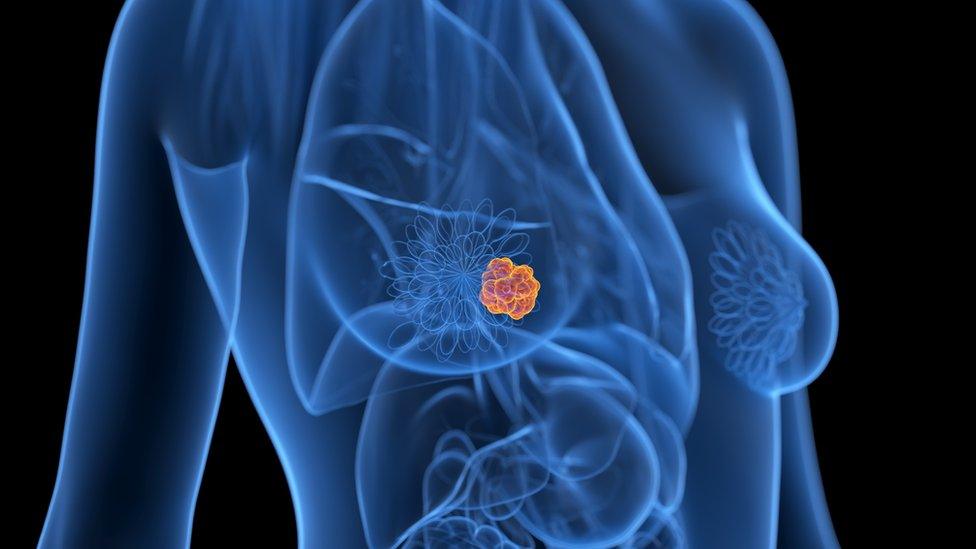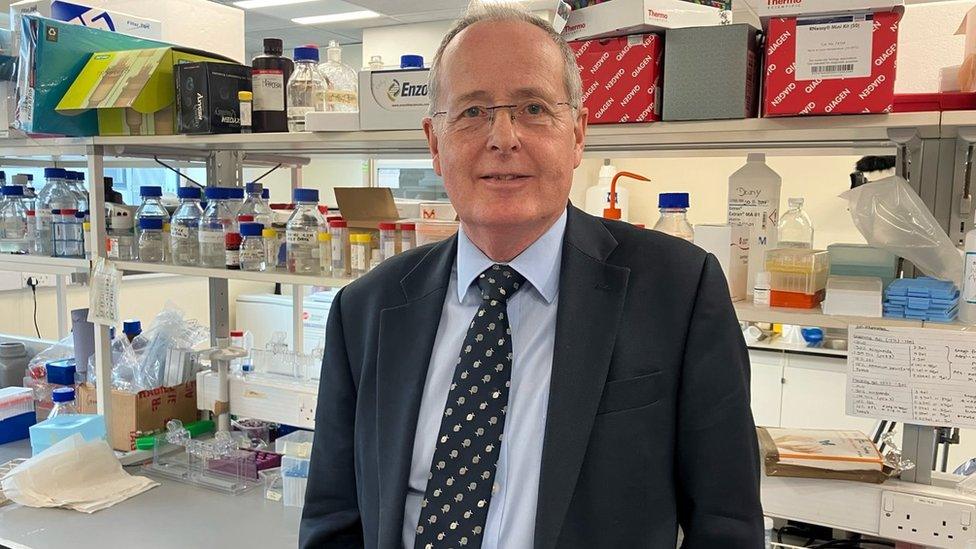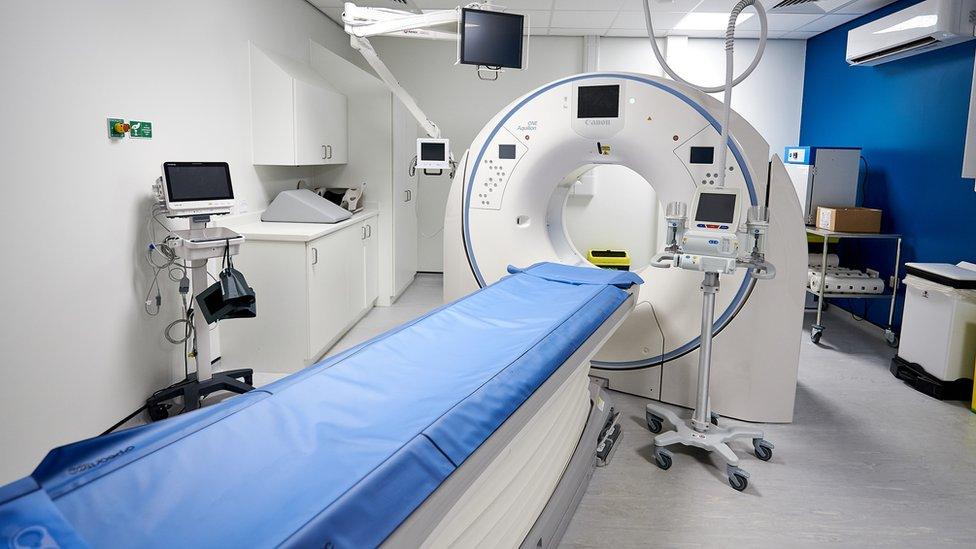Bradford: New breast cancer test hopes to predict spread of disease
- Published

The University of Bradford trial is being conducted in collaboration with Leeds Teaching Hospitals NHS Trust and the University of Leeds
A new test aiming to predict the risk of breast cancer returning or spreading is being trialled in Bradford.
The process, called Ran Diagnostics, works by identifying two proteins in the cells of the original cancer.
Early findings have shown a correlation between the levels of these proteins and patient outcomes.
Researchers at the University of Bradford hope it could be quicker and more cost effective than existing genetic tests.
The trial has been designed for patients with the most common type of breast cancer.
If successful it could be ready for regulatory approval in two to three years.
A pilot study examined 181 historic tumour samples from a range of breast cancers and found 98% of patients with low levels of the proteins did not develop secondary breast cancer.
Researchers will now examine a further 600 samples with the most common form of breast cancer to compare results against existing genetic tests used by the NHS.

Prof Chris Twelves hopes it could lead to "quicker and less expensive" breast cancer treatment
Prof Chris Twelves, clinical director at the university's Institute of Cancer Therapeutics, said: "When people are first diagnosed with breast cancer, their oncologist will want to discuss whether they may benefit from extra drug treatment to reduce the risk of the cancer returning and spreading.
"One of the ways we do that now is through a genetic test on the cancer, but that test is expensive and can be slow."
He continued: "If, as we hope, [Ran Diagnostics] is as good at identifying who may benefit from such extra treatment, it will be quicker and less expensive, helping us to better personalise cancer treatment for our patients."
Dr Mohammad Isreb, associate professor in medicine development, said: "It may help indicate who may benefit from extra treatment, and those at low risk, who may be able to be spared extra treatment and avoid its painful and unpleasant side effects."
There are around 55,000 new cases of breast cancer every year in the UK, with about 60% eligible for the testing.
The trial will be conducted in collaboration with Leeds Teaching Hospitals NHS Trust and the University of Leeds.

Follow BBC Yorkshire on Facebook, external, X (formerly Twitter), external and Instagram, external. Send your story ideas to yorkslincs.news@bbc.co.uk, external.
Related topics
- Published28 February 2024
